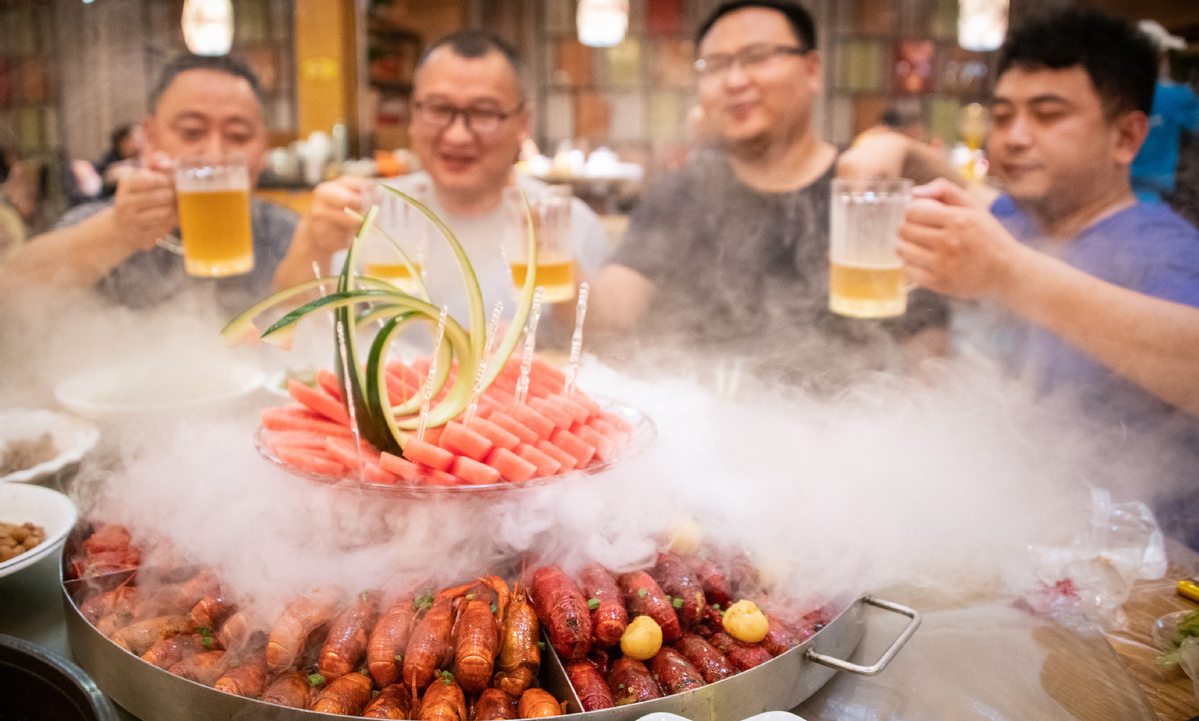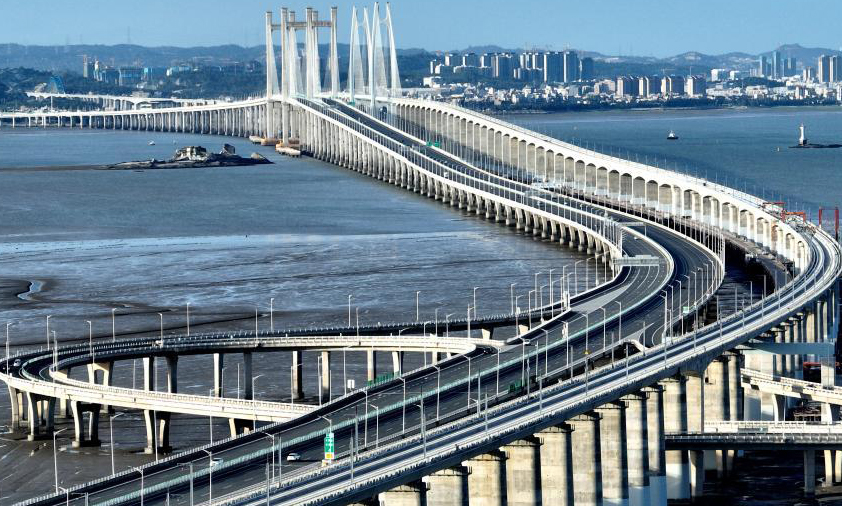Human trafficking, forced labor feed modern slavery in U.S.
MEXICO CITY, July 9 (Xinhua) -- Mexican-born Flor Molina was once a victim of modern slavery, condemned to forced labor in the garment manufacturing industry in the U.S. city of Los Angeles, after emigrating there with the help of a person who turned out to be a human trafficker.
For 40 days, she was coerced into working 18 hours a day at a garment factory with no pay, making dresses that sold for 200 U.S. dollars in department stores.
Molina was made to sleep in the factory warehouse, sharing a single mattress with another victim, and to clean the facility after work.
Her ordeal ended 20 years ago, when she was finally able to escape one day, but for many migrants the nightmare continues.
More than 500,000 people in the United States, many of them migrants, currently live in conditions of slavery, according to data from the University of Denver.
Others die in the process of emigrating, like the more than 50 Mexican and Central American migrants left to perish inside a locked trailer in late June in San Antonio, Texas.
The "End Slavery Now" project, which seeks to raise awareness about forced labor in the United States, tells the plight of Molina and others like her on its social networks, noting the prevalence of such cases in a country that is a self-proclaimed defender of human rights.
Mexican experts told Xinhua that migrants are one of the groups most likely to fall victim to tragedies like the one in San Antonio, or to fall into the hands of criminal groups using forced labor as a result of misguided policies and socio-cultural patterns of discrimination, racism and xenophobia in the United States, they said.
Ariadna Estevez, an academic at the Center for Research on North America at the National Autonomous University of Mexico, blames the vulnerability of migrants on the "U.S. prohibitionist approach" to immigration, which prevents the application of a sensible policy.
"The fact that the borders are closed to asylum is causing more of this type of thing because closed borders facilitate organized crime and labor trafficking," Estevez said.
Even those who enter the United States legally, through temporary work visas, can become victims of criminal groups, she added.
The criminal organization "Patricio," said Estevez, long operated as a legitimate migrant recruitment agency, yet coerced dozens into forced labor on farms in the United States, making 200 million dollars in four years.
A recent investigation by the Mexican daily Milenio, which looked into U.S. court documents, revealed the criminal organization sold 30 workers for 21,000 dollars, "as if they were cattle."
The worst thing about these crimes is that many of them occurred "under the protection of bilateral accords that are completely outside of human rights and trade agreements" between the United States and other countries, such as Mexico and those of Central America, said Estevez.
"It is a type of slavery that is even legal in that sense," said the academic.
Criminal gangs benefit from this as they get money from migrants for transporting them, and often also traffic in the legal documents they seize from them. The United States benefits from this because "it allows its industry to hire cheap labor," said Estevez.
The United States also benefits when migrants are caught and placed in privately-run detention centers that have become big business, she noted.
Jose Maria Ramos, a researcher at Mexico's Colegio de la Frontera Norte, or College of the Northern Border in English, said the U.S. need for labor and its high volume of immigration have created a situation where many migrants work in precarious conditions ripe with exploitation, discrimination and violations of U.S. law.
"Undoubtedly, (these practices) are detrimental to human dignity ... and, above all, to the universal declaration of human rights," Ramos said.
According to international organizations monitoring human rights, forced labor is extensive in more than 20 U.S. industries, such as agriculture.
University of Guadalajara researcher Maria Antonia Gutierrez told Xinhua that human trafficking and forced labor of migrants are tolerated in the United States because of certain local economic interests they could bring.
Migrant forced labor has become a "necessary" condition of an economic model based on "financial, social and cultural inequality," and "put the United States in a shameful position," Gutierrez said.
By failing to acknowledge the problem, she said, U.S. authorities are further encouraging human trafficking and smuggling.
But they do it for "their own benefit, for the benefit of companies," and to the detriment of the rights of migrants and other victims, she added.
Photos
Related Stories
- Canada, U.S., Mexico to maintain trade flows in emergency situations
- U.S. water likely contains more "forever chemicals" than its tests show: The Guardian
- Raped 10-year-old denied abortion reflects botched U.S. governance
- Six wounded by stray bullets during Fourth of July fireworks in U.S. Oakland
- Entrenched inflation a "significant risk" to U.S. economy, say Fed officials
Copyright © 2022 People's Daily Online. All Rights Reserved.









